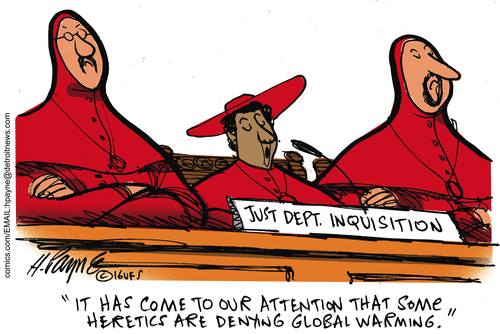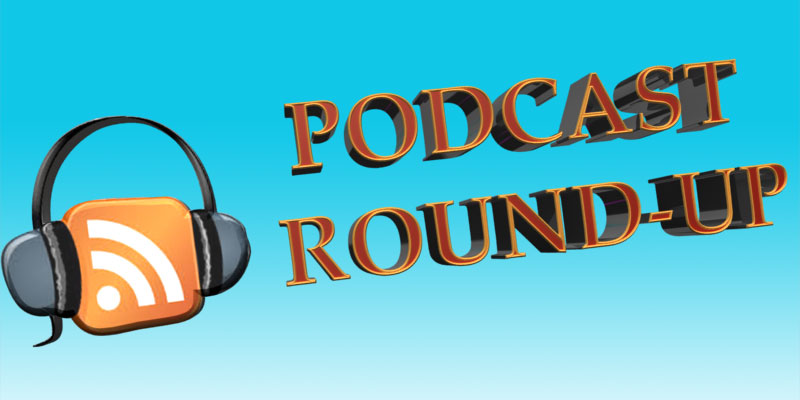Each week I present a round-up of the podcasts I listen to. These podcasts are all centered around the theme of looking at current events through the lens of Ayn Rand’s philosophy.
In this week’s edition:
- Yaron Brook on Leonard Peikoff’s Podcast – Muslim immigration in Europe
- Yaron Brook and Steve Simpson – Free Speech
- Amy Peikoff – Surviving the 2016 Election
- Elan Journo – How to change the culture? and Radicalization
Leonard Peikoff Podcast – Episode 408
In this episode of Leonard Peikoff’s bi-weekly podcast, Yaron Brook answers a couple of questions related to Muslim immigration in Europe (ed: and by extension, to the United States). He starts off by discussing his views on Muslim immigration in two different situations. The first is a utopian world where we are not at war (undeclared) with a portion of the Muslim population. There is no constant threat of terrorism from this part of the population, there is no welfare state, and multiculturalism (i.e. the idea that all cultures are equal) is not dominant in society. The second situation is the one that we are currently in. His views on proper immigration are vastly different between the two situations.
The second question is about the rising incidence of rape in Europe. He says there is clearly “something going on” there, but it’s hard to know what because the governments are suppressing information (e.g. what percentage of rapes is being committed by immigrants). He discusses what happens when you have people with a barbaric culture who come into an area which is more civilized but are told their culture is just as good as the civilized culture; you cannot be surprised when they behave barbarically.
AM560 Rewind: Free Speech is the Foundation of a Free Society
Following up on last week’s broadcast, Yaron continues the discussion of the importance of free speech. This week he, along with his special guest Steve Simpson, discusses the recent attempt by several state Attorneys-General to prosecute fossil fuel companies for fraud. The claim is that by “suppressing” climate research, a nonsensical charge, companies like Exxon were misleading investors on the potential risks if the government were to decide to take steps to curb global warming. Yaron and Steve both see this as simply an attempt by the government to silence those who do not believe in the government’s narrative on global warming. As Steve Simpson put it, “It is an attempt to change a debate into a fraud prosecution.” This even though the idea of “fraud on the public is an incoherent notion.”
You absolutely cannot have the government setting up an orthodoxy, not in climate science or any other area of inquiry. Once there is such an orthodoxy, holding and expressing ideas contrary to it puts a target on your back. The scandal over the IRS targeting of conservative groups leading up to the 2012 election is an example of this. If this tactic, establishing an orthodoxy and prosecuting the heretics, succeeds in the arena of climate change, there is nothing it could not be applied to. Such an argument could be applied to any controversial issue in the public sphere with virtually nothing off limits. Such actions would have a chilling effect not only on speech but on what research is pursued. Government funding of science, something it should not do, magnifies this effect. Under such pressure and incentives, people begin to “clamor for government money rather than clamor for the truth.”

The greatest worry about this situation is that most people don’t seem to care, but they should. Free speech is fundamental to a free society, and if we “don’t have free speech, we don’t have a modern society.”
Don’t Let it Go Unheard – Surviving the 2016 Election and Beyond
As always, Amy puts up show notes for all the articles she talks about. You can find them here.
Now that politics is looking pretty bleak with the contest likely coming down to Trump versus Clinton, what can we do to survive the next four years, which are bound to be awful politically? One thing we can do is focus on what is going right in the culture, and there is a lot of that, not just what is going wrong.
Amy has started looking at the possibility of voting for Gary Johnson, who will likely be the Libertarian party nominee. She has resisted voting Libertarian in the past because they tend to lump together those who believe in a limited government and those who want no government (i.e. anarchy), and often operate with no solid philosophical principles with which to defend their positions. Amy spends a good amount of time going over Gary Johnson’s positions on many issues including government spending, taxes, jobs, regulations, the internet and more. In general, she finds that he is even better on many issues than Cruz.
She touches on some other issues including the fear of hospitals to use personalized genetic testing because of potential FDA regulations, the situation in Venezuela, the Oklahoma anti-abortion law, the House unanimously passing an e-mail privacy bill and more.
Radical Capitalist Episode 47: How to Change a Culture – New Intellectuals
Elan Journo guest hosted again for Yaron, who is still traveling around the world on his speaking tour. He started off the program picking up a thread from last week’s show, that of the need for intellectuals. Intellectuals play a crucial role in society, and their job is to evaluate events and pass that knowledge on to other professions. Because this is so crucial a role, it is vital that the intellectuals have the right ideas, and when they have the wrong ideas, those ideas must be refuted and counteracted with proper ones.
This is in part the role of the Objectivist Academic Center, a program for teaching future intellectuals not only the proper ideas but the proper way to think about ideas. Elan talked with Keith Lokitch, who has been involved with the OAC for more than ten years about how the program works and what its goals are. One interesting point was the discussion of who the targets are for the OAC. In the past, and to some extent still today, they focused on those who wanted to be professional intellectuals (e.g. philosophy professors or work in a think tank), but today they are also looking to attract intelligent, ambitious leaders in other areas. A real-world example they gave was the fact that BB&T, the bank formerly run by John Allison, refused to fund projects using eminent domain following the Kelo decision. Imagine the impact it would have if the CEO of Exxon were to handle himself before a congressional committee like Hank Rearden.
Elan then moved on to the topic of “Radicalization,” which he took pains to point out he was using in scare quotes because he feels this is a poorly conceptualized term. He has started to look at the research on what causes someone to become a terrorist (i.e. to become radicalized) and he finds that researchers are approaching it backward. They tend to classify groups first according to their tactics, i.e. terrorism, and then broken down by ideology. Elan believes that this reverses the proper order and that these groups should first be classified by their ideology, their goals and then by the tactics they use to achieve them. The question of how to deal with a group motivated by religious ideology has a vastly different answer than how to deal with one with secular ideals.
There is a complex interaction between ideology and psychology. If a group has irrational goals, It will impact their psychology in various ways. Not in a deterministic manner, but if you hold certain ideas, your propensity to certain actions will be higher.
He concluded this segment by saying that there will be very little progress in figuring out why people become terrorists until there is a clearer conceptualization of the issue.
The last major segment of the show started with a description of how Elan was reading to his son a 1991 book about cars in which there was a segment about cars of the future. Features of these cars of the future included cars with computerized maps and self-driving cars, both of which exist or are being developed today. This leads to the idea that we actually are living in the future, that the progress we have made is something to revel in. He mentioned an article by Don Boudreaux at Café Hayek titled “Most Ordinary Americans in 2016 Are Richer Than Was John D. Rockefeller in 1916.” This article talks about all the things that ordinary people have access to today that the richest people could hardly dream of, let alone possess, one hundred years ago.
As Amy Peikoff pointed out in her podcast, there are things going right in the culture today and we need to keep that in mind and not just look at the negative political situation. We need to accept the mixed nature of the world and celebrate the good while fighting against the bad.
Elan ended the program with a brief discussion about OCON, an article by Onkar Ghate in response to the claim that Ayn Rand is just a didactic novelist.
Lastly, he announced a contest. If you can answer the question: What two essays by Ayn Rand are closely related to inequality and the themes of Equal is Unfair by Yaron Brook and Don Watkins? He has two essays in mind, but you can try to make a case for others. The winner will be randomly selected from those with the correct answer and that winner will receive: a copy of Equal is Unfair, an Equal is Unfair t-shirt, a copy of Elan’s book Winning the Unwinnable War, and some other loot he may come up with. Submit your answers here.


Pingback: Universal Basic Income, Either-Or and More - Podcasts for June 5 - Order From Chaos